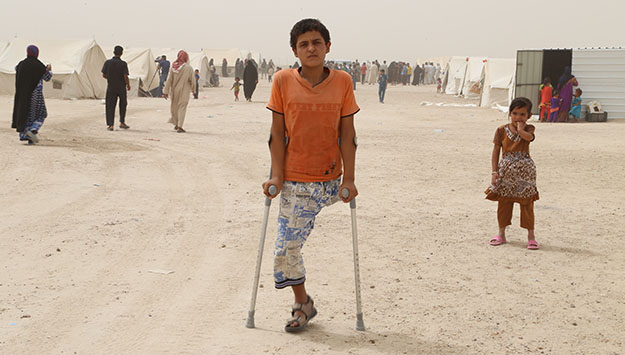Summary
This paper explores the relationship between terrorism and human rights from the international legal perspective. It first reviews the definitional content of “terrorism” and “human rights” and then discusses their doctrinal interactions—considering terrorism as both a cause and a product of human rights violations and addressing counter-terrorism efforts as a source of human rights violations that can themselves generate support for terrorism. It concludes with some observations about issues of international terrorism in the context of refugee law, criminal law and humanitarian law as well as some recommendations for future action.
Key points
- The international human rights “revolution” has transformed the landscape of the international community, with an increasing number of bodies empowered to issue binding decisions.
- International terrorism has also become a dominant factor in international relations but no agreed definition of terrorism exists, much less effective international mechanisms for punishing terrorists.
- As a result, the international legal “system” remains incomplete, sometimes inconsistent.
- We must acknowledge that human rights violations can be a main generator of terrorist violence and that repressive counter-terrorism practices are demonstrably counter-productive.
- A comprehensive, binding convention is needed to criminalize terrorism and establish effective mechanisms requiring terrorists (and their “aiders and abettors”) to compensate their victims.
Read more:



